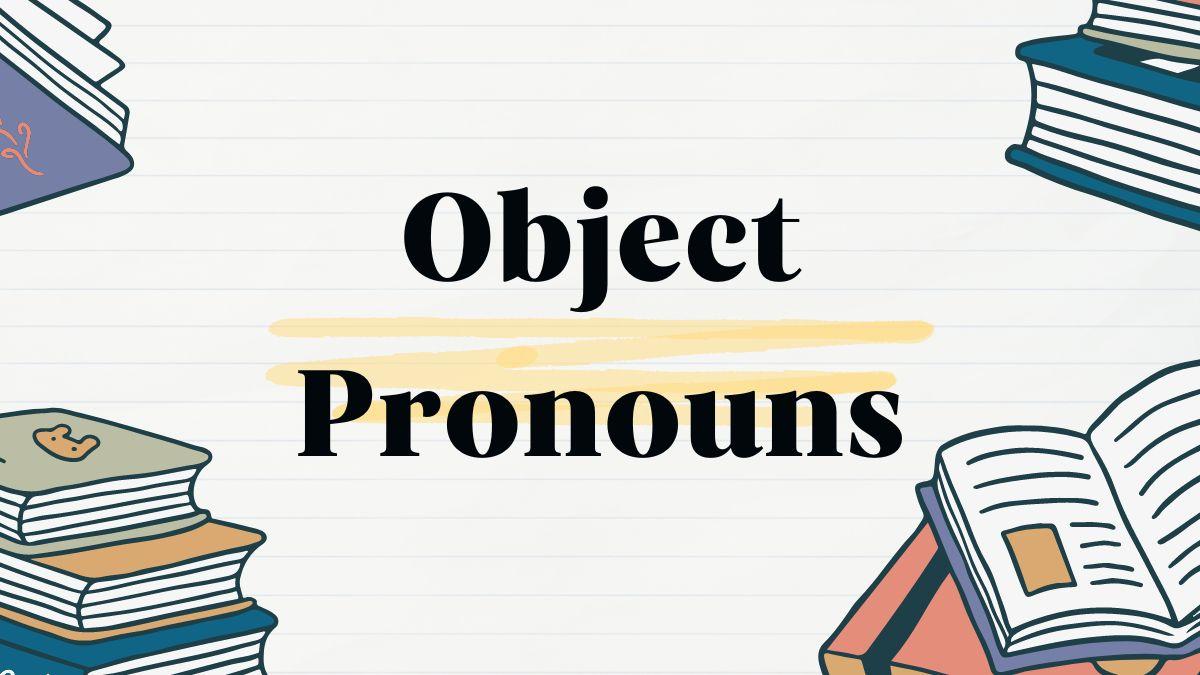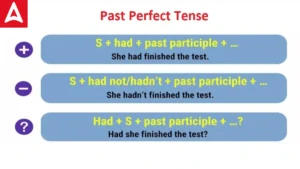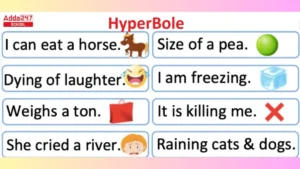Object Pronouns
An object pronoun is a particular category of personal pronoun that is typically employed as a grammatical object, either as the direct or indirect object of a verb or as the object of a preposition. Whether they are direct object pronouns or indirect object pronouns, these pronouns always accept the objective case.
What is an Object Pronoun?
The seven fundamental pronouns have various meanings when employed as object pronouns as opposed to subject pronouns:
- I become Me
- You become You (this rule applies for singular and plural use)
- He becomes Him
- She becomes Her
- It becomes It
- We become Us
- They become Them
Finding an object pronoun when you see one will be incredibly simple if you know how to discover the object of a sentence. Locate the nouns and verbs in the sentence and mentally separate them from the remaining words to determine the sentence’s object. The sentence’s subject and object will both be nouns or pronouns. The action that the verb describes will be carried out by the subject. The noun or pronoun that is the subject of the action is the object. It’s even easier when an object pronoun is used as the object rather than a noun.
Object Pronouns Definition
In a sentence, an object pronoun is a word that takes the place of a noun. The sentence’s subject cannot be the noun it is replacing. Instead, it takes the place of an object noun, a noun that was the recipient of a verb’s action. Sometimes the term “objective pronouns” is used to describe object pronouns. The objective pronouns form an important part of pronouns and English Grammar as a whole.
Object Pronouns Examples
A table is given below which shows all the examples of subject pronoun and their objective pronouns.
| Subject pronouns | Object pronouns |
|---|---|
| I | me |
| you | you |
| he | him |
| she | her |
| it | it |
| we | us |
| you | you |
| they | them |
Object Pronouns Examples in Sentences Exercise
Given below are some examples of object pronoun
- Jerry bought a pencil.
Jerry bought it.
The object here is ‘a pencil’, and it can be substituted by the object pronoun ‘it’.
- Ron and Harry met Hermoine in the evening.
Ron and Harry met her in the evening.
The object here is ‘Hermoine. It can be substituted by the object pronoun ‘her’.
- Did you like the ice cream?
Did you like it?
‘The ice cream is the object in the sentence and can be substituted by the object pronoun ‘it’.
- When can we meet your parents?
When can we meet them?
‘your parents’ are the objects in the sentence and can be substituted by the object pronoun ‘them’.
Object Pronouns Uses
In order to prevent wordiness and complex sentences, objective pronouns are used in English. They improve the clarity and effectiveness of speaking and writing. For instance,
- Together with Mary and Mike, I visited a beach. I went to the movies with them after the beach.
- Together with Mary and Mike, I visited a beach. I went to the movies with Mary and Mike after the beach.
It is preferable to refer to “Mary and Mike” collectively as “them” rather than by name each time.
Pronouns can only be used when an antecedent is present. Before a pronoun can be used in place of a noun, the listener must understand to whom or what the pronoun refers. Therefore, in the instance of the aforementioned example, make sure to at least once mention “Mary and Mike” by name before continuing to use the pronoun “them.”
Types of Object Pronoun
There are three types of objective pronouns
- Direct object
- Indirect object
- An object of a preposition
Direct Object Pronouns
A sentence’s direct object is the thing on which the verb is acting. The example that follows is provided. A sentence’s direct object is the thing on which the verb is acting. The example that follows is provided.
For example: I know her.
Here, the sentence structure is I (subject) + know (verb) + her (direct object).
We can observe that the action (verb) is implied/acted on the pronoun (her).
Indirect Object Pronouns
An item that receives a direct object is the indirect object of a statement.
In simple English, a pronoun is an indirect object of the verb since it indirectly impacts the direct object. The example that follows is provided.
For example: I sent her a dress.
Here, the sentence structure is I (subject) + sent (verb) + her (indirect object) + a dress(direct object).
We can observe that the action (verb) is implied/acted on the direct object (a dress), but the pronoun (her) became the indirect object because it is a recipient of the direct object.
An Object of a Preposition
An object pronoun that is under the control of a preposition in a sentence is known as the object of a preposition.
For Example: He was with us.
Here, the sentence structure is: He (subject) + was (verb) + with (preposition) + us (object pronoun).
We can observe that the preposition (with) is used in between the verb (was) and the object pronoun (us).
Related posts:











 Vocabulary Words with Meaning and Senten...
Vocabulary Words with Meaning and Senten...
 Past Perfect Tense: Definition, Formula,...
Past Perfect Tense: Definition, Formula,...
 Hyperbole- Explanation, Definition, Exam...
Hyperbole- Explanation, Definition, Exam...









